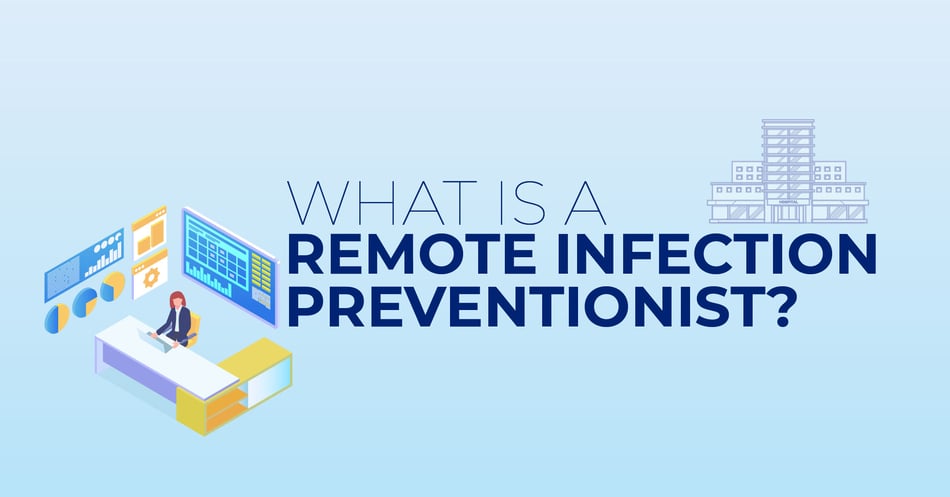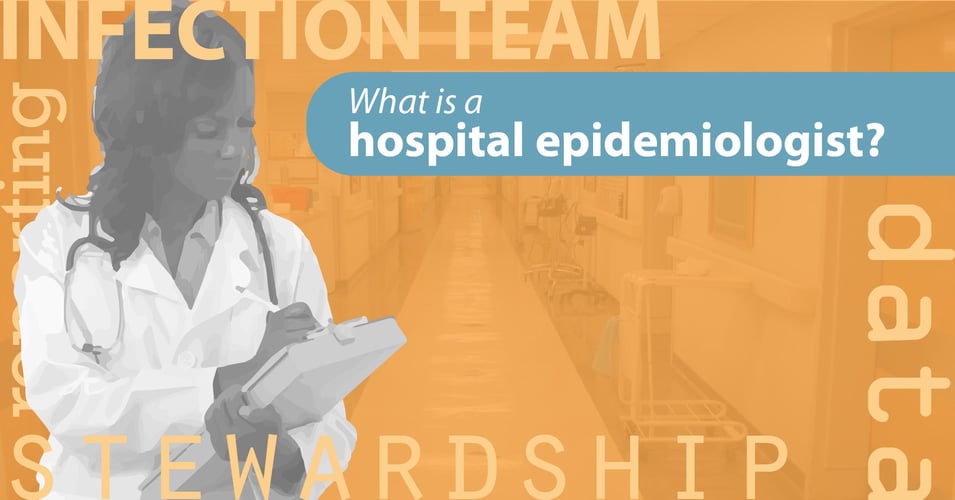What is a Remote Infection Preventionist?

 A remote infection preventionist is a professional who specializes in preventing the spread of infections within healthcare settings, but performs their duties remotely. A remote infection preventionist can work as a part of a larger team sub-contracted by the healthcare facility, or be directly employed by the facility. However, as the field of infection control and prevention (IP) faces challenges in staffing, funding, and substantial job responsibilities, outsourcing some aspects of IP may be a trend that is here for the foreseeable future. In today's post, we will examine which aspects of IP can be performed remotely, how far this trend has spread, and what the future may hold for the remote infection preventionist.
A remote infection preventionist is a professional who specializes in preventing the spread of infections within healthcare settings, but performs their duties remotely. A remote infection preventionist can work as a part of a larger team sub-contracted by the healthcare facility, or be directly employed by the facility. However, as the field of infection control and prevention (IP) faces challenges in staffing, funding, and substantial job responsibilities, outsourcing some aspects of IP may be a trend that is here for the foreseeable future. In today's post, we will examine which aspects of IP can be performed remotely, how far this trend has spread, and what the future may hold for the remote infection preventionist.
Hospital infection preventionists perform both administrative and clinical duties. They work directly with healthcare workers and their patients, but also collect and analyze data to improve the infection prevention program. The purpose of outsourced IP work is to remove the responsibility of data collection and analysis from the in-house IPs, thus either enabling a hospital to comply with reporting requirements even if they are understaffed, or freeing in-house infection preventionists to focus more on implementing interventions and programs.
So, what are some possible responsibilities of a remote infection preventionist?
- Developing infection control policies and procedures, including assembling emergency preparedness plans, prevention protocols, and other documentation.
- Conducting surveillance for healthcare-associated infections (HAIs), including reviewing electronic health records and lab reports.
- Educating healthcare workers on infection prevention practices, either directly through webinars or in-person visits, or by creating training materials that is used by in-house personnel.
- Investigating outbreaks and in some cases, suggesting control measures, including informing local and state health departments, creating action plans, and reviewing medical records.
- Collaborating with other healthcare professionals to ensure compliance with infection control guidelines such as hand hygiene compliance, antibiotic stewardship, and utilization of indwelling devices.
- Analyzing data to identify trends and areas for improvement in infection prevention efforts, and reporting those findings to in-house leadership.
- More in-depth consultation on problem-solving, such as targeted efforts to improve in a specific area or to implement a facility-wide initiative.
So how does this the field of outsourced infection prevention actually work? While the field is relatively new, it seems that most remote infection preventionists work in one of two ways. First, they can be directly hired by the healthcare facility (or, more likely, a system) to be a part of their remote data analysis team. A second, and increasingly popular way, is through an external service that provides remote infection prevention support to an array of facilities or networks. One such service that has been operating for over twenty years is the Duke Infection Control Outreach Network (DICON), which was established to provide low-resource hospitals with high-quality data surveillance and analysis. Other service providers have cropped up over the years, many forming within the last few years to meet the growing need for this kind of work. There seems to be a profitable market for these services.
What does the future hold for remote infection prevention? Trends seem to indicate significant growth, but only if there are enough certified infection preventionists to fill the need. Overall, there is a scarcity of infection preventionists nationwide, without the prospect of improvement (many IPs are approaching retirement age, and not enough individuals are in the IP pipeline to replace them). While artificial intelligence and machine learning may make the process of data collection and analysis more streamlined, the human touch will still be required. In fact, the projected growth for the field of epidemiology (which includes infection preventionists) is 27%, which is significantly higher than the average national growth of 10%. However, time will tell whether outsourcing some IP responsibilities has net benefits for patients and the hospital bottom line.
![EOScu Logo - Dark - Outlined [07182023]-01](https://blog.eoscu.com/hubfs/Eoscu_June2024/Images/EOScu%20Logo%20-%20Dark%20-%20Outlined%20%5B07182023%5D-01.svg)




